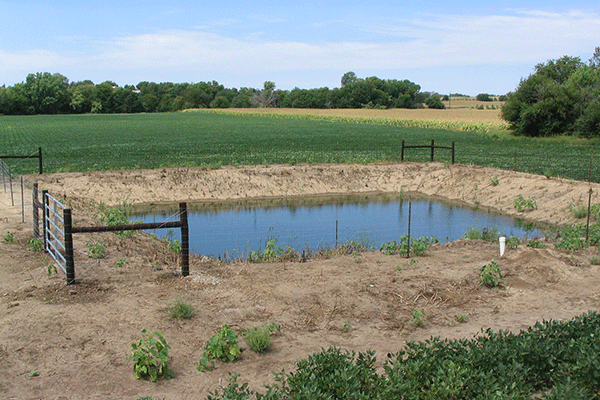Do you have questions about your private drinking water supply? How about wellhead protection, including the management of your private sewage treatment system? Send your questions to Nebraska Extension Educator Meghan Sittler, Nebraska Extension Specialist Bruce Dvorak, and/or Nebraska Extension Educator Katie Pekarek. One question and answer will be featured each month in this section of the acreage web site.
Q: Over the past several months I’ve noticed that the water level within my wastewater lagoon continues to increase and stay at a higher than normal level. What is happening with my lagoon?
Meghan: Lagoons, when functioning properly, should maintain near a constant water level. This indicates that discharge into the lagoon from the home is appropriate as is the treatment processes occurring within the lagoon itself. If the lagoon maintains an elevated water level for a prolonged period of time it may be time to examine operation and maintenance of the lagoon and practices within your home. More than likely a “spike” in water levels that pushes the water level up within the lagoon is the result of a change of wastewater flowing into the lagoon. A leak within your home, such as one caused by an issue with the plumbing or appliances, allows a near constant flow of water out of your home into the lagoon. The lagoon, like all wastewater systems, is designed to handle a daily flow. Leaks or new fixtures installed within the home after the design of the lagoon increase the amount of wastewater discharged into the lagoon. This does not allow the treatment process to occur correctly. While this can also indicate some additional potential issues with the lagoons structure and function is most commonly associated with a problem or change within your home.

